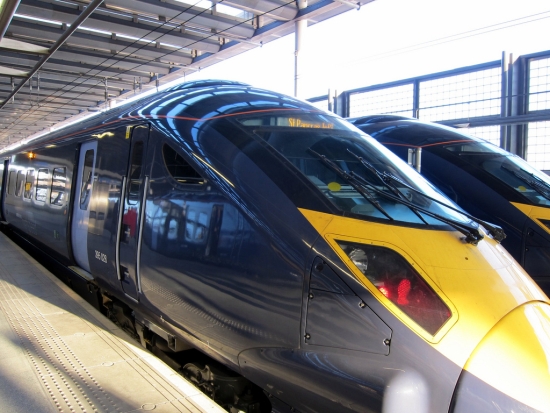Britain’s new high speed rail line — which will stops 100 miles short of Newcastle — is vital for the economic future of the North-East, its director general has claimed.

Backing the planned HS2 network, and pushing for its extension through the region and into Scotland, would bring northern businesses closer to London and Europe, David Prout insisted. “With HS2 you have a much, much better chance of spreading the benefits of economic growth throughout the entire country,” he added. “Without it you will not get that growth.”
Under current proposals the £42bn high speed route will run from London to Birmingham where it splits to serve Leeds and Manchester. At least half-an-hour would be shaved off existing travelling times to the three cities, although critics say at least ten minutes of that would come with improvements to existing track. The first phase is due for completion in 2026, with the second Y-shaped route due to be opened by 2033.
“The North-East as a whole is big enough to understand that in order to bring benefits to the region you have to get within striking distance,” added Prout. “The region has been very supportive. I won’t say that has surprised me, but it is very, very refreshing.”
In addition to the 22,000 temporary construction related jobs, Government research has claimed that, even without a direct HS2 link to Newcastle, the new line would boost the region’s economy by at least £15bn a year by 2037.
The North East Chamber of Commerce has always maintained that local companies would be foolish to ignore HS2.
“Future business success depends on infrastructure networks that meet demand. Rail is no exception. The UK rail network must have the capacity to meet rocketing business demand for long-distance services, for commuter rail services, and for the transport of freight,” said the chamber’s policy and research manager, Mark Stephenson.
“It is indisputable that the scheme is costly. But so was the roll-out of the railway system over 100 years ago, which was the last significant investment in the UK rail network,” added Stephenson. “The channel tunnel, HS1 and countless other rail schemes all stand as monuments against those that said they were too expensive and too difficult — they have delivered and continue to deliver for UK plc.”
Chambers of commerce from across the north last year sent a joint letter to the Prime Minister urging him to extend the HS2 project into Scotland.
“Not all of our towns, cities or members will be connected to a high speed rail network,” said James Ramsbotham, chief executive of the North East Chamber of Commerce and the letter’s author.
“However, we are united in support of the project because of the impact HS2 will have on our members and the ensuing economic uplift this will generate.”
Condemning “scaremongering” over the high speed network, Ramsbotham claimed that, “Piecemeal upgrades to existing routes would never solve Britain’s looming rail capacity crunch. Incremental upgrades hurt business productivity too, through years of delays and disruption – and will inevitably cost more over time.”
Previous Post
Montello launches Commercial Property Lending Fund